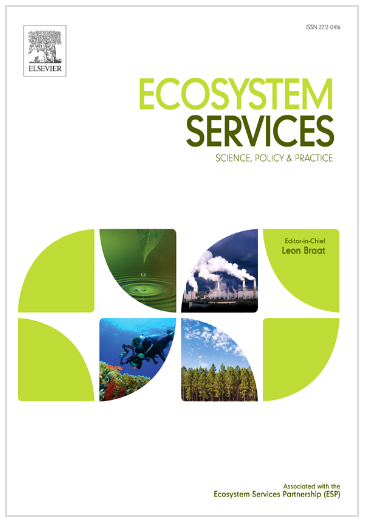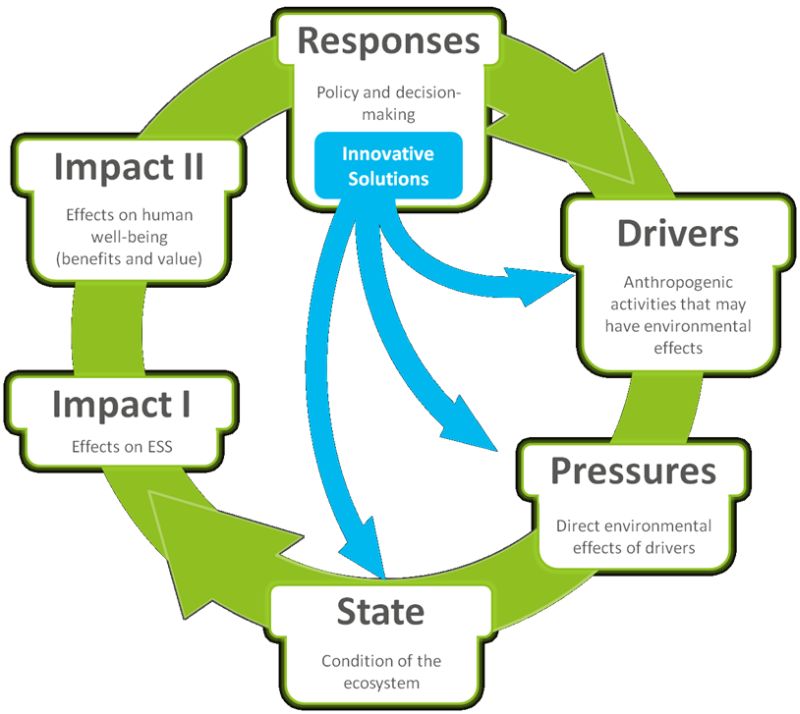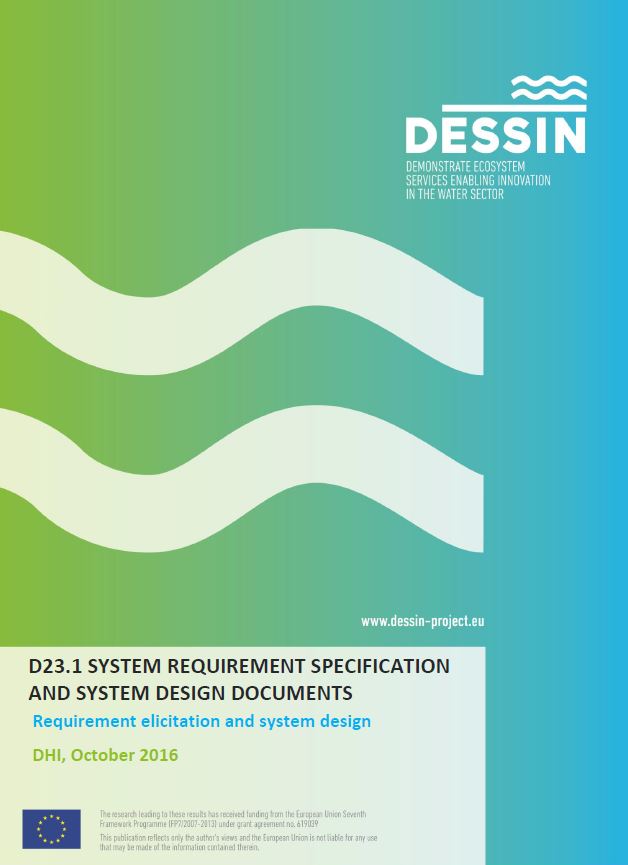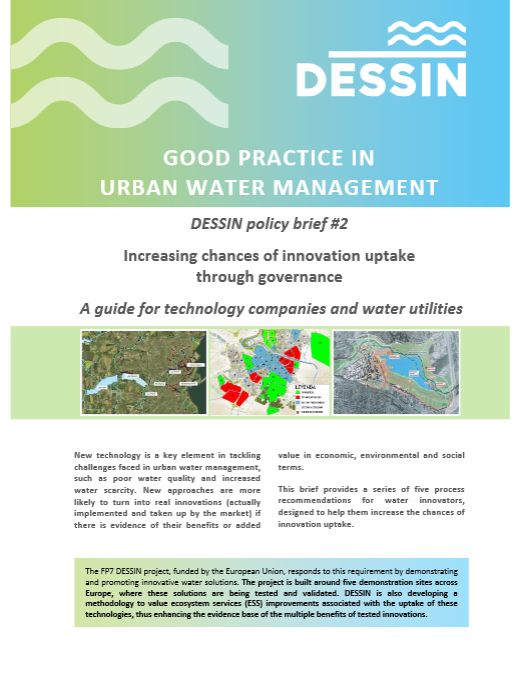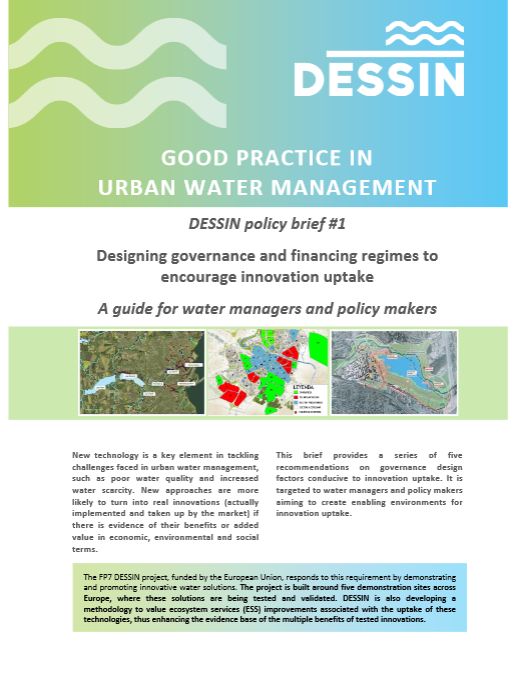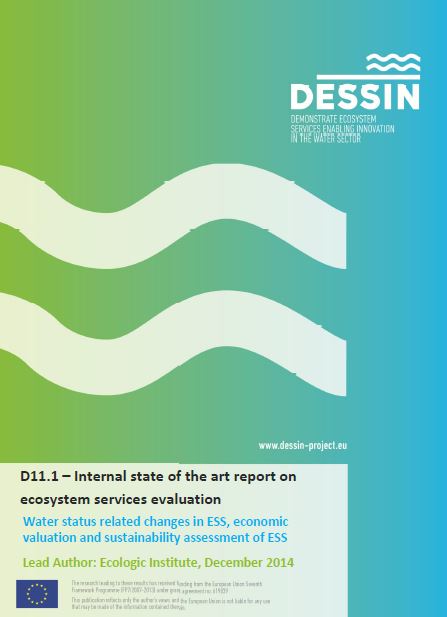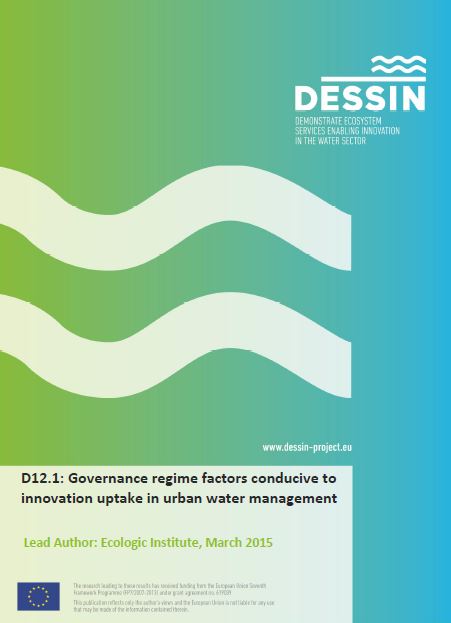Governance Regime Factors Conducive to Innovation Uptake in Urban Water Management
Experiences from Europe
- Publication
- Citation
Rouillard, Josselin; Vidaurre, Rodrigo; Brouwer, Stijn; Damman, Sigrid; Ponce, Alberto A.; Gerner, Nadine V.; Riegels, Niels; Termes, Montserrat. 2016. "Governance Regime Factors Conducive to Innovation Uptake in Urban Water Management: Experiences from Europe." Water 8, no. 10: 477.
Innovative ways to manage the urban water cycle are required to deal with an ageing drinking and waste water infrastructure and new societal imperatives. This paper examines the influence of water governance in enabling transformations and technological innovation uptake in urban water management. A governance assessment framework is developed and applied in three case-studies, examining different scales and types of innovations used to tackle challenges in European urban water management. The methodology combines documentary analysis and interviews to reconstruct historical storylines of the shift in the water governance of urban water management for each site. The research provides detailed empirical observations on the factors conducive to innovation uptake at the local level. Critical governance factors such as commitment to compromise, the necessity to build political support, and the role of "entrepreneurs" and coalitions are highlighted. The paper also explores the role of discursive strategies and partnership design, as well as that of regulative, economic and communicative instruments, in creating barriers and opportunities to initiate and secure change. A number of recommendations targeted at innovators and water managers are presented in the conclusion.
- Language
-
English
- Authorship
-
Stijn BrouwerSigrid DammanAlberto Antorán PonceNadine V. GernerNiels RiegelsMontserrat Termes
- Funding
-
European Commission, Directorate-General Research & Innovation (DG Research & Innovation), International - Published in
- Water, 2016, 8(10), 477
- Published by
-
Multidisciplinary Digital Publishing Institute (MDPI), Switzerland - Year
- ISSN
-
2073-4441
- DOI
- Project
- Project ID
- Table of contents
-
Click to show full table of contents
1. Introduction
2. Materials and Methods
2.1. The Governance Assessment Framework
2.2. The Assessment Template
2.3. Data Collection
2.4. Data Analysis
3. Results
3.1. Aarhus Case-Study
3.2. The Emscher Case-Study
3.3. The Zaragoza Case-Study
4. Discussion
4.1. Levels and Scales
4.2. Actors and Networks
4.3. Goals and Ambitions
4.4. Strategies and Instruments
4.5. Resources and Responsibilities
5. Conclusions
References - Keywords
-
transitions, cities, sustainability, adaptation, water governanceEurope, Aarhus, Emscher, Zaragoza, Denmark, Germany, Spaincase study
Rouillard, Josselin et.al. 2015: Governance Regime Factors Conducive to Innovation Uptake in Urban Water Management. Deliverable 12.1, DESSIN, European Union's Seventh Framework Programme for Research and Innovation Grant Agreement No. 619039.
Rouillard, Josselin; Vidaurre, Rodrigo: Designing governance and financing regimes to encourage innovation uptake. A guide for water managers and policy makers. DESSIN policy brief 1. October 2015.
Vidaurre Rodrigo and Rouillard Josselin: Increasing chances of innovation uptake through governance. A guide for technology companies and water utilities. DESSIN policy brief 2. October 2015.
Rouillard, Josselin et.al. 2015: Governance Regime Factors Conducive to Innovation Uptake in Urban Water Management. Deliverable 12.1, DESSIN, European Union's Seventh Framework Programme for Research and Innovation Grant Agreement No. 619039.
Demonstrate Ecosystem Services Enabling Innovation in the Water Sector (DESSIN)
- Duration
-
-
- Funding
-
European Commission, Directorate-General Research & Innovation (DG Research & Innovation), International
